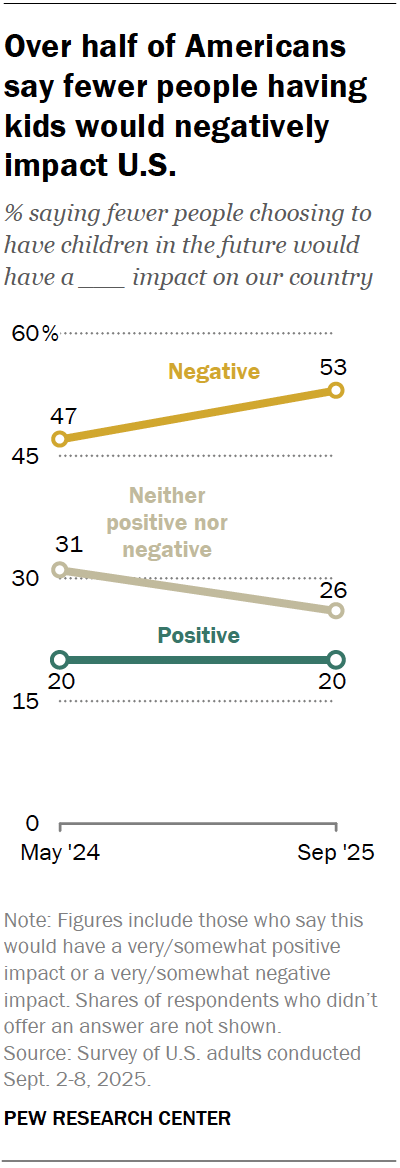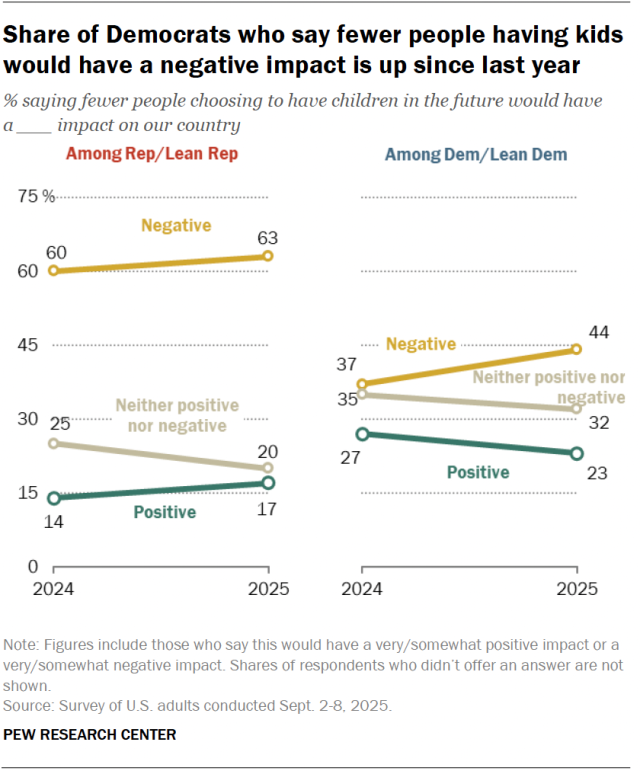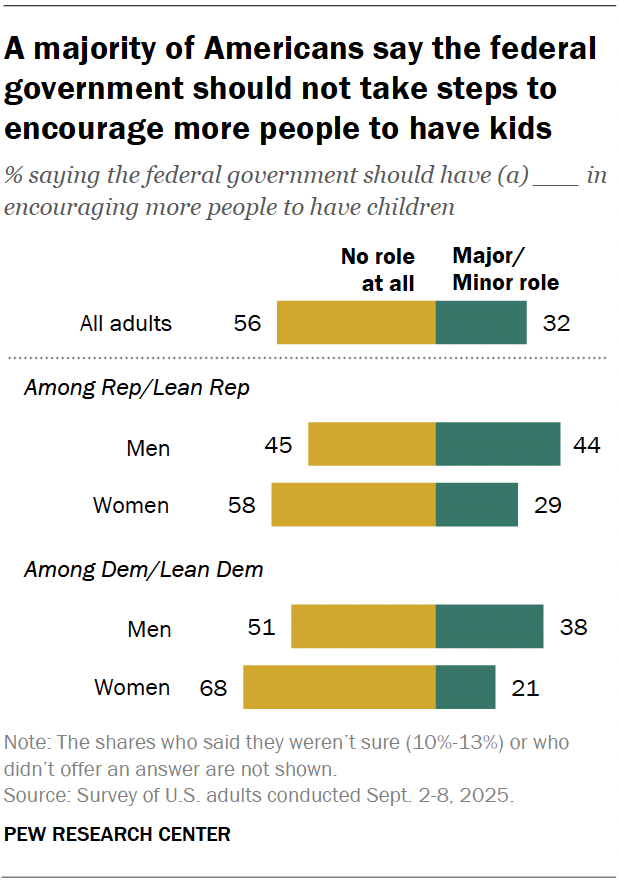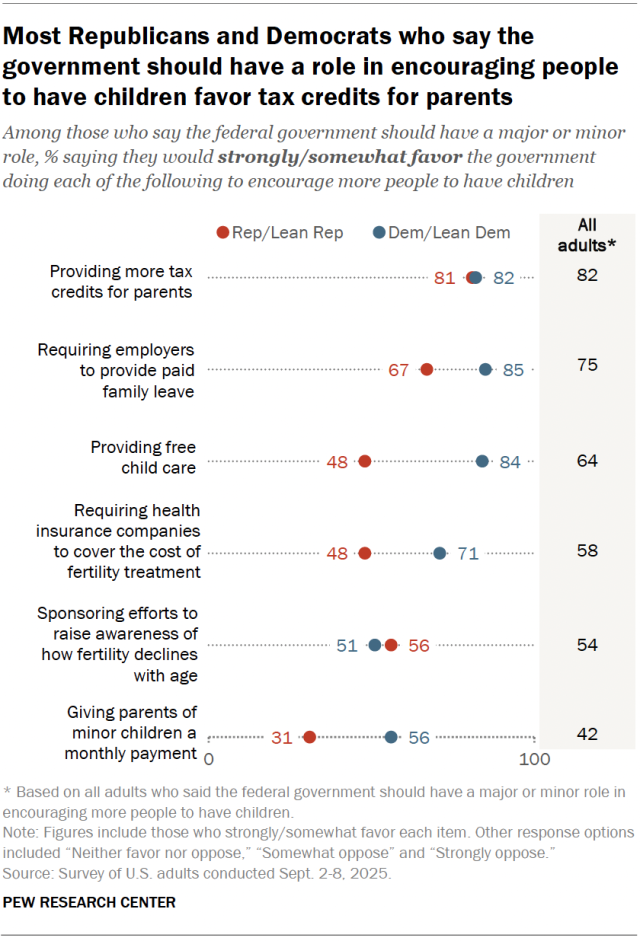Over half of Americans (53%) now say fewer people choosing to have children in the future would negatively impact the United States. This share is up 6 percentage points since last year.

Still, a majority (56%) say the federal government should have no role in encouraging more people to have kids. About a third (32%) say it should have a major or minor role, according to a new Pew Research Center survey.
These findings come amid increased attention to the pronatalist movement, which aims to increase the birth rate in the U.S.
Views on fewer people choosing to have kids
Growing shares of men, women, Democrats and Republicans say fewer people having children would negatively impact the country.
Today, 59% of men say it would have a very or somewhat negative impact, compared with 54% in 2024. And 48% of women now say this, up from 42%.
The share of Democrats and Democratic-leaning independents who say it would have a negative impact increased 7 points, from 37% in 2024 to 44% today. There was a smaller but statistically significant increase among Republicans and GOP leaners, from 60% to 63%.

Should the federal government encourage more people to have kids?

A 56% majority of Americans say the federal government should have no role at all in encouraging more people to have children. One-in-ten say the government should have a major role, and 22% say it should have a minor role. Another 12% are not sure.
Women are more likely than men and Democrats are more likely than Republicans to say the government should have no role in this.
- 63% of women vs. 48% of men
- 60% of Democrats vs. 51% of Republicans
There is also a clear gender gap within each party. Majorities of Republican women (58%) and Democratic women (68%) say the government should not play a role at all, compared with 45% of Republican men and 51% of Democratic men.
What policies would Americans favor to encourage people to have children?
We asked those who say the government should have a major or minor role in encouraging more people to have kids how they feel about various policies that might help to achieve this goal.

Majorities of adults in this group say they would support almost all of the policies we asked about. But the most popular policy is providing more tax credits for parents (82% would strongly or somewhat favor it).
More than six-in-ten would favor policies that would require paid family leave or provide free child care.
Smaller majorities would support insurance coverage for fertility treatments such as in vitro fertilization and raising awareness of how fertility declines with age.
The only policy that fewer than half favor is monthly payments to parents of minor children.
Views of government policies by party
About eight-in-ten Republicans and Democrats who say the federal government should play a role in encouraging people to have kids say they would support providing more tax credits for parents.
Republicans and Democrats also give somewhat similar answers when asked about the government sponsoring efforts to raise awareness of how fertility declines with age.
But Democrats are far more likely than Republicans to say they would support:
- Requiring employers to provide paid family leave (85% vs. 67%)
- Providing free child care (84% vs. 48%)
- Requiring health insurance companies to cover the cost of fertility treatment (71% vs. 48%)
- Giving parents of minor children a monthly payment (56% vs. 31%)
Note: Here are the survey questions used for this analysis, the topline and the detailed methodology.
